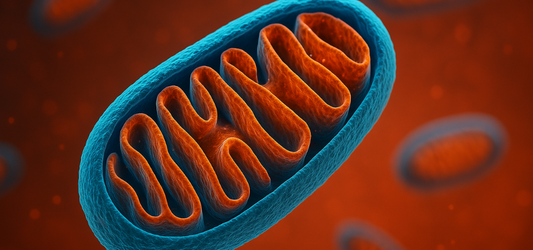How Alzheimer's scrambles your brain's internal clock

How Alzheimer's Hijacks Your Brain's Daily Schedule
Sleep disruption often signals the earliest stages of Alzheimer's disease, appearing years before memory problems become obvious. Now researchers have discovered why: the disease doesn't just affect memory centers in the brain — it fundamentally rewires the body's internal clock, scrambling the precise timing that keeps brain cells functioning properly.
How Alzheimer's Hijacks Your Brain's Daily Schedule
Every cell in your body operates on a 24-hour schedule, with genes turning on and off in carefully orchestrated patterns that align with day and night cycles. This circadian rhythm controls roughly 20% of all human genes, ensuring that cellular repair, waste removal, and energy production happen at optimal times.
In Alzheimer's disease, this biological clockwork goes haywire. Researchers from Washington University School of Medicine discovered that amyloid plaques — the protein clumps that define Alzheimer's — don't just clog brain tissue. They actively disrupt the daily rhythms of hundreds of genes in critical brain cells called microglia and astrocytes.
"There are 82 genes that have been associated with Alzheimer's disease risk, and we found that the circadian rhythm is controlling the activity of about half of those," explains Dr. Erik Musiek, who led the study published in Nature Neuroscience.
The research team tracked gene activity in mouse brains every two hours across full 24-hour cycles. What they found was striking: amyloid accumulation created chaos in cellular timing, forcing genes that normally follow strict daily schedules to activate at random times — or creating artificial rhythms in genes that should remain steady.
The Brain's Cleanup Crew Falls Behind Schedule
This timing disruption hits brain maintenance particularly hard. Microglia and astrocytes serve as the brain's cleanup crew, removing cellular waste and toxic proteins during specific windows when the brain is less active. When their circadian rhythms get scrambled, this essential housekeeping falls behind schedule.
The consequences cascade through multiple brain systems. Genes responsible for breaking down amyloid proteins lose their coordinated timing. Inflammatory responses that should peak and subside in healthy patterns become erratic. Even basic cellular energy production gets thrown off its natural rhythm.
This explains why Alzheimer's patients experience such profound sleep disturbances. Their brain cells are literally operating on different clocks, creating the restless nights and daytime confusion that families recognize as early warning signs.
Beyond Sleep: Circadian Disruption Affects Cognitive Performance
The implications extend far beyond sleep quality. Circadian rhythms influence neurotransmitter production, hormone release, and the brain's ability to form and consolidate memories. When these systems lose their synchronized timing, cognitive performance suffers across multiple domains.
Research suggests that circadian disruption may accelerate amyloid accumulation, creating a vicious cycle. Poor sleep and irregular daily rhythms stress brain cells, making them more vulnerable to protein buildup. As amyloid levels rise, circadian disruption worsens, further compromising the brain's ability to clear toxic waste.
This connection helps explain why shift workers and people with chronic sleep disorders face elevated Alzheimer's risk. Disrupted circadian rhythms may prime the brain for disease development decades before symptoms appear.
Emerging Strategies for Circadian-Based Brain Protection
The discovery opens new avenues for both prevention and treatment. Rather than focusing solely on removing amyloid plaques after they form, researchers are exploring ways to strengthen circadian rhythms before disruption occurs.
Light therapy shows particular promise. Exposure to bright light at specific times can help reset disrupted circadian clocks, potentially restoring healthy gene timing in brain cells. Some studies suggest that maintaining consistent sleep-wake cycles and meal timing may also support cellular rhythms.
Certain supplements that influence circadian biology are under investigation, though research remains early-stage. Melatonin, which naturally regulates sleep-wake cycles, may help maintain healthy brain rhythms. Compounds that support mitochondrial function could also prove beneficial, since cellular energy production follows strict circadian patterns.
What Current Science Can't Yet Answer
Important questions remain about translating these findings to human treatment. The mouse studies provide crucial insights, but human circadian biology involves additional complexity. Researchers don't yet know whether strengthening circadian rhythms can reverse existing amyloid accumulation or only prevent further buildup.
The timing of interventions also remains unclear. Would circadian-based treatments work best in early-stage disease, or could they benefit patients with advanced symptoms? Different brain regions may respond differently to rhythm-restoration therapies.
Dr. Musiek acknowledges these uncertainties: "We have a lot of things we still need to understand, but where the rubber meets the road is trying to manipulate the clock in some way, make it stronger, make it weaker or turn it off in certain cell types."
Practical Steps for Supporting Brain Rhythms
While targeted therapies develop, current evidence supports several lifestyle approaches for maintaining healthy circadian rhythms. Consistent sleep-wake cycles help synchronize cellular clocks throughout the brain. Regular exposure to natural light, particularly in the morning, reinforces daily rhythm patterns.
Physical activity at consistent times may also support circadian health, as exercise influences many of the same cellular pathways affected in Alzheimer's disease. Avoiding late-night light exposure from screens helps preserve natural melatonin production.
The research suggests that protecting circadian rhythms may be as important for brain health as traditional approaches like cardiovascular exercise and cognitive stimulation. By maintaining the precise timing that keeps brain cells functioning optimally, we may be able to preserve cognitive performance well into later life.
This discovery reframes Alzheimer's disease not just as a problem of protein accumulation, but as a fundamental disruption of biological timing. As researchers work to develop circadian-based treatments, the message for brain health becomes clear: the rhythm of our daily lives may be just as important as what we do during waking hours.



